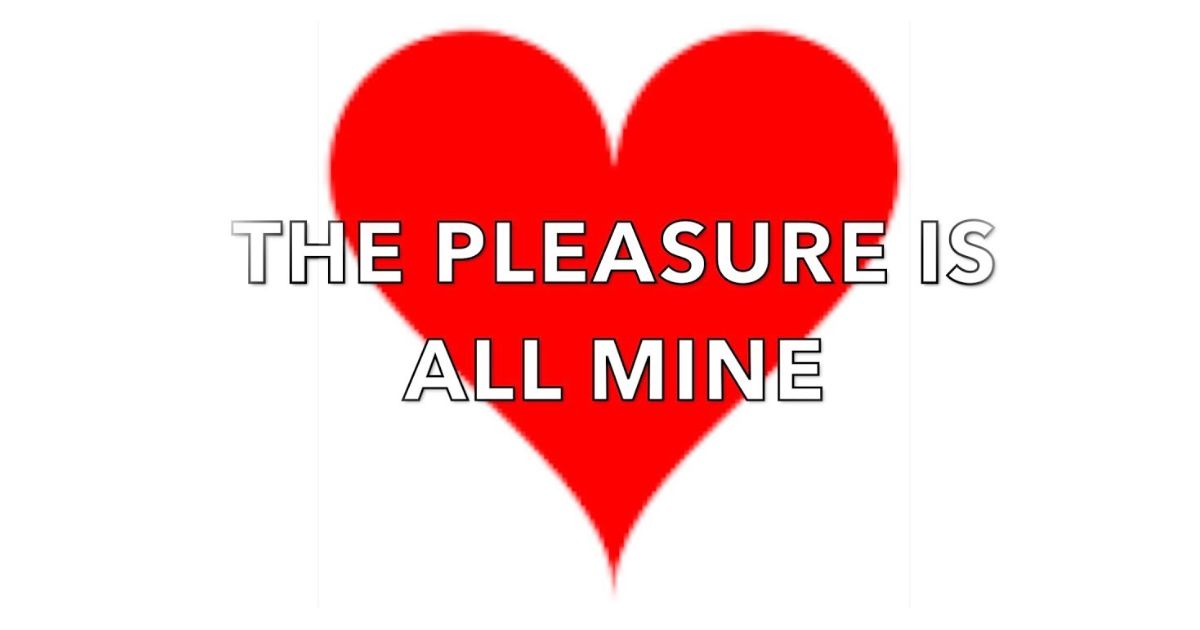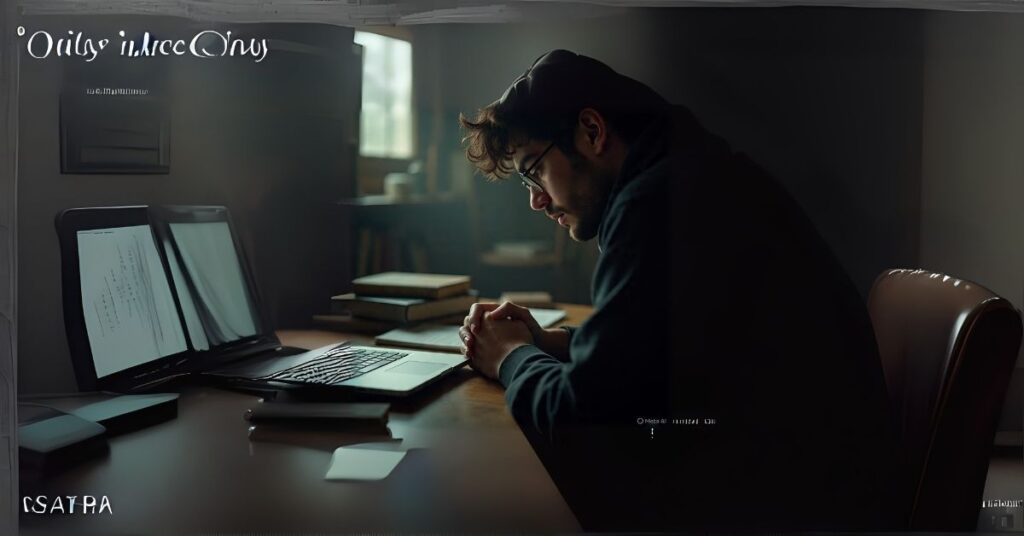Have you ever heard someone say, “The pleasure is all mine,” and wondered why it feels so warm and special? This simple phrase goes beyond just saying thank you, it shows genuine happiness and gratitude. It’s a polite way to return kindness when someone thanks you first. Whether in a casual chat or a formal meeting, saying “The pleasure is all mine” adds a touch of respect and friendliness that anyone can appreciate.
Using “The pleasure is all mine” creates a positive connection. It tells the other person you truly value the moment and their appreciation. Sometimes, you might want to mix it up with other phrases, but the meaning stays just as heartfelt. Next time you want to express thanks with sincerity, remember this timeless expression: “The pleasure is all mine.”
Other Ways to Say “The Pleasure Is All Mine”
Other ways to say “The pleasure is all mine” include expressions like “I’m equally delighted,” “It was my privilege,” and “Glad to be of service.” These alternatives convey warmth, humility, and gratitude, fitting well in both formal and casual conversations to acknowledge appreciation graciously and sincerely.
Expressions of Gratitude
Expressions of gratitude convey sincere thanks and appreciation in both personal and professional settings. Using phrases like “The honor was mine” or “I cherish the opportunity” helps you show humility and respect. These expressions strengthen relationships by making others feel valued and recognized for their efforts or kindness.
1. I’m equally delighted
Example:
A: “Thank you for inviting me to your presentation.”
B: “I’m equally delighted!”
Meaning: This phrase conveys shared satisfaction and joy, making it an excellent choice for polite reciprocation. It shows the feeling is mutual and deepens the emotional connection.
Usage: Use this in both professional settings and informal interactions where you want to show that the experience was just as enjoyable or meaningful for you. It works well in emails, in-person conversations, or even in presentation follow-ups where expressing humility and mutual respect matter.
2. The honor was mine
Example:
A: “We’re grateful for your insight during the panel.”
B: “The honor was mine.”
Meaning: This is one of the more formal expressions of verbal appreciation. It shifts the spotlight back to the other person, showing that you feel privileged to have been involved.
Usage: Ideal for mentorship relationships, collaborative efforts, or when wrapping up professional communication. This response adds a sense of grace and sincerity, perfect for situations where polite language and emotional intelligence in communication are key.
3. Happy to contribute
Example:
A: “Thanks for your help on the quarterly strategy.”
B: “Happy to contribute!”
Meaning: A friendly, warm phrase that expresses both appreciation and willingness. It implies that your help was freely and gladly given, showing both gratitude and team spirit.
Usage: Best used in teamwork acknowledgments, business communication, or during a client interaction where you want to keep the tone light but sincere. It’s one of those gratitude responses that feels both human and humble.
4. Honored to assist
Example:
A: “Your guidance was incredibly helpful, thank you.”
B: “Honored to assist.”
Meaning: This expression reflects genuine pride and professional respect. It shows you’re thankful for the opportunity to help and that you took the task seriously.
Usage: Use this in formal conversations, particularly when you’re trying to maintain a professional tone while still sounding warm and appreciative. It’s great for networking etiquette, presentation follow-ups, or even as part of a polite response in written communication.
Read More: 9 Other Ways to Say “I’m Working on It”
Polite Reciprocations
Polite reciprocations show kindness and respect by responding graciously to compliments or thanks. Phrases like “Glad to be of service” or “Happy to contribute” acknowledge the other person’s appreciation while expressing your willingness to help. These responses maintain warmth and professionalism, encouraging ongoing positive interactions.
5. It was my privilege
Example:
A: “We couldn’t have pulled this off without you.”
B: “It was my privilege.”
Meaning: This powerful phrase reflects sincerity and expressing humility. It means you truly valued being part of the experience, and it wasn’t just a task, it was meaningful.
Usage: Common in formal conversations, especially in mentorship relationships, client interactions, or significant collaborative efforts. It fits beautifully into professional communication and can be used in written or spoken gratitude responses to show deep appreciation and mutual respect.
6. Glad to be of service
Example:
A: “Thanks for jumping in on short notice!”
B: “Glad to be of service.”
Meaning: This phrase is a warm, polite response often heard in customer service or support roles. It shows a helpful attitude without sounding boastful, offering polite reciprocation and a sense of gratitude.
Usage: Perfect for client interactions, teamwork acknowledgments, or business communication. Whether used in an email or face-to-face, this appreciation phrase reinforces a willingness to help and adds a professional but friendly touch to your response.
7. Always a joy
Example:
A: “I appreciate your help with the onboarding session.”
B: “Always a joy.”
Meaning: This phrase expresses genuine pleasure in being involved, adding a light, human tone that reflects warmth and respectful communication. It says, “I didn’t just help, I enjoyed it.”
Usage: Best for informal interactions, collaborative efforts, and even presentation follow-ups where you want to convey positivity and energy. It adds conversation variety while maintaining a professional yet friendly vibe.
8. Gratified to help
Example:
A: “Thanks again for stepping in during the crisis.”
B: “Gratified to help.”
Meaning: A slightly more formal version of “Happy to help,” this phrase implies deep satisfaction in being useful. It emphasizes both emotional intelligence in communication and humility.
Usage: Works well in professional settings and formal expressions, especially when the contribution had a real impact. Whether in a business communication email or during a networking event, this phrase showcases polite language and genuine appreciation.
Expressions of Mutual Respect
Expressions of mutual respect strengthen relationships by showing genuine appreciation and acknowledgment. Using phrases like “The honor was mine” or “I’m equally delighted” conveys humility and recognition of the other person’s value. These expressions build trust and foster positive communication in both personal and professional interactions.
9. I cherish the opportunity
Example:
A: “Thank you for letting me be part of the panel discussion.”
B: “I cherish the opportunity.”
Meaning: This phrase expresses heartfelt gratitude and shows you truly value the chance to participate. It’s more than polite, it reveals emotional intelligence in communication and a deep sense of appreciation.
Usage: Ideal for professional settings, mentorship relationships, or any situation where you’re acknowledging the value of inclusion. It’s a great way to respond to compliments and show respectful communication in a sincere, memorable way.
10. The pleasure was truly mine
Example:
A: “Thanks again for taking the time to speak with us.”
B: “The pleasure was truly mine.”
Meaning: A more expressive version of “The pleasure is all mine,” this response carries a touch of warmth and politeness, reinforcing your enjoyment of the interaction while subtly emphasizing mutual respect.
Usage: Excellent for both formal expressions and casual responses, especially in client interactions or presentation follow-ups. It works well in emails, thank-you notes, and real-time conversations where professional tone matters.
11. A rewarding collaboration
Example:
A: “I’m grateful for all your help on this project.”
B: “It’s been a rewarding collaboration.”
Meaning: This phrase highlights the value of teamwork and the satisfaction gained from shared success. It reflects teamwork acknowledgments, showing that both parties contributed and benefited.
Usage: Best used in collaborative efforts, especially after projects, meetings, or partnerships. It aligns with professional etiquette, business communication, and expressing gratitude responses in a way that feels both appreciative and humble.
12. Privileged to share this journey
Example:
A: “Working with you these past months has been a gift.”
B: “I feel privileged to share this journey.”
Meaning: This expression is deeply heartfelt and carries a sense of respect and emotional connection. It conveys a meaningful, long-term sense of shared purpose or growth.
Usage: Ideal for mentorship relationships, networking etiquette, or long-term team collaborations. It fits well in farewell notes, end-of-project reflections, or messages of thanks where a sincere, reflective tone is key.
When to Use Different “The Pleasure Is All Mine” Alternatives
Use different alternatives to “The pleasure is all mine” based on context and tone. For casual chats, phrases like “Always a joy” feel warm and friendly. In formal or professional settings, opt for “It was my privilege” or “Privileged to share this journey” to show respect and sincere gratitude.
Casual Settings
In casual conversations, saying “I cherish the opportunity” shows heartfelt appreciation without sounding too formal. You can use it when a friend or coworker thanks you for including them in something fun or meaningful. It lets them know you genuinely value the experience and enjoyed being part of it. This phrase helps deepen your connection by expressing sincere gratitude naturally.
It works well in texts, casual emails, or friendly chats where you want to express appreciation warmly. Using this phrase in everyday conversations adds emotional depth to your gratitude responses and shows that you recognize the importance of shared moments.
Formal Settings
In formal settings, saying “I cherish the opportunity” conveys deep appreciation and respect for being included in a professional or significant occasion. It’s a polished way to acknowledge that you value the chance to contribute, learn, or collaborate. This expression adds sincerity to your professional communication and shows humility in a respectful manner.
Use it in emails, presentations, or meetings where you want to express gratitude without sounding casual. It signals that you recognize the importance of the opportunity and take your role seriously, which helps strengthen professional relationships.
Conclusion
In conclusion, saying “The pleasure is all mine” is a kind and polite way to show gratitude. It helps you express thanks in a warm and respectful way. Whether in casual talks or formal settings, “The pleasure is all mine” fits perfectly. Using this phrase often makes your communication more friendly and sincere.
Remember, “The pleasure is all mine” is not just about words. It shares your genuine feelings. When you say “The pleasure is all mine,” you make others feel valued. You build good connections and show appreciation clearly. So, keep “The pleasure is all mine” in your language toolbox. Use it often to show gratitude and respect. It will help you speak politely and create positive conversations every time.

Grammerroot is your trusted source for mastering English grammar and language skills. From simple rules to advanced tips, we help learners build strong foundations through easy-to-understand content. Learn smart, learn right — only at Grammer Root.




